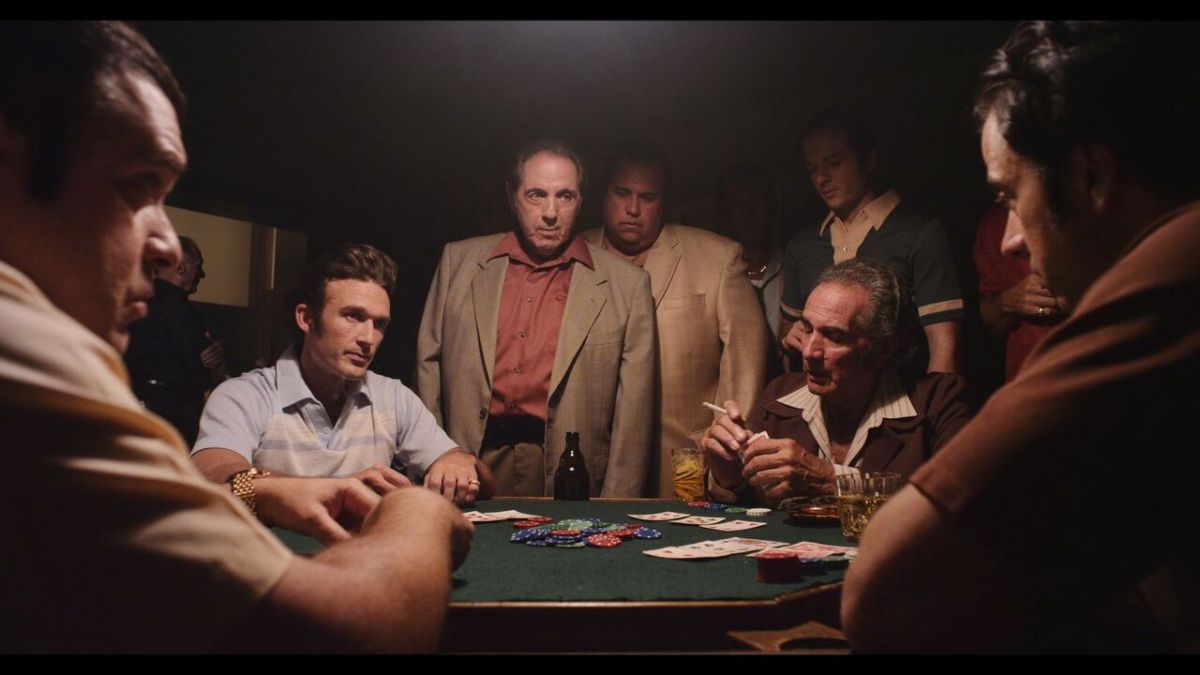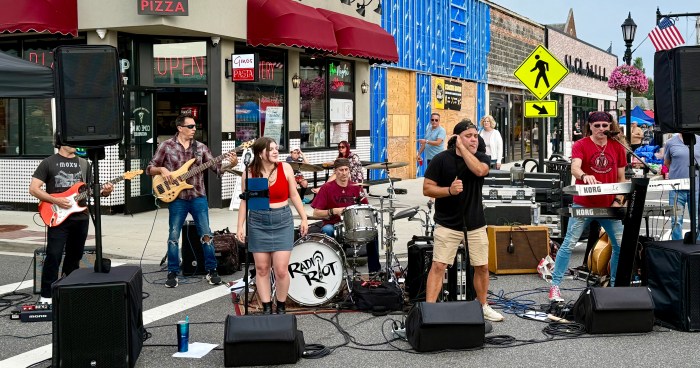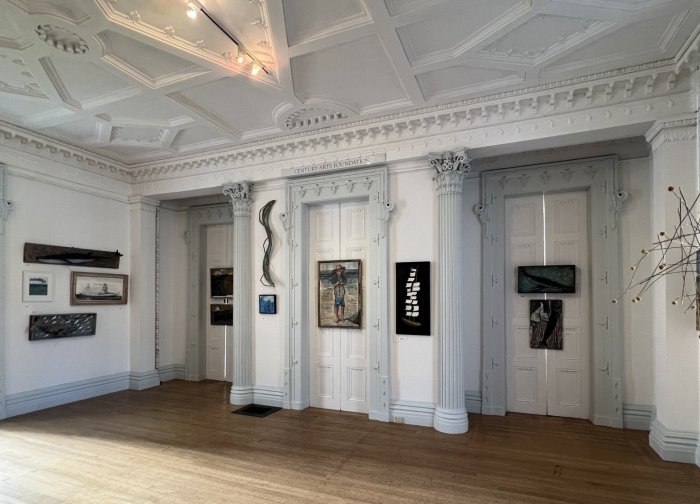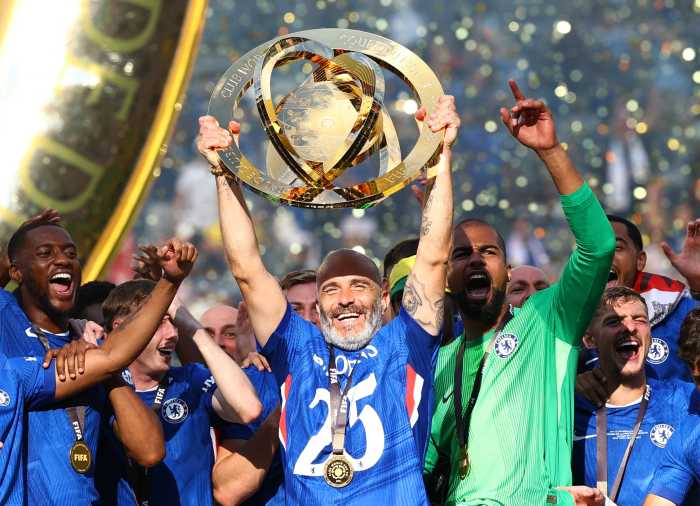The air is thick with the rich scent of sausages and peppers and the hot grease of fried zeppoles.
Local musicians serenade a crowd of neighborhood families with ’50s and ’60s rock and roll and doo-wop standards, like “Duke of Earl” and “I Believe.” On the Ferris wheel, on the stoop of the church, and manning the booths selling hot calamari or festival games offering “A Prize For Everyone” are the residents of Williamsburg, Brooklyn.
It’s a warm summer night. The Feast of Our Lady of Mount Carmel and San Paolino di Nola is in full swing.
Tomorrow, a handful of locals will lift the Giglio, an 82-foot, ornate, wooden, flower-laden steeple in a sacred parade that has marked the neighborhood since 1958. For the last three years, the honorary lifting of the Giglio has gone to Federico Castelluccio, best-known for his role as Furio on HBO’s acclaimed hit, The Sopanos.
On this Saturday night in mid-July, Castelluccio is in the basement of Our Lady of Mount Carmel church, along with Garden City writer/producer Michael Ricigliano, and cast members of the feature film The Brooklyn Banker, which premieres Aug. 5. They sign promotional posters, share a bag of zeppoles, and humor the flocks of Brooklyn women who have come to see Castelluccio in person, and, if they can work up enough courage, to ask to take a picture with him. He honors every request with that same smoldering smile that seduced Carmela Soprano.
“We shot from the rooftop to get the wide shots of the feast,” Castelluccio tells the Press, lips white with powdered sugar. “But we had to change the street signs because it was set in the ’70s.”
That detail, most likely to be overlooked by the average filmgoer, is just one of the marks of his thoughtful direction, designed to give an unmatched authenticity to every scene.
The Brooklyn Banker, the feature film written by Ricigliano, was expanded from the 2010 short film Lily of the Feast, starring and directed by Castelluccio. It also featured Paul Sorvino and John Bianco. The short went on to win top prizes at major film festivals, including Best Director/Short Film at the 2011 Long Island International Film Expo. The Brooklyn Banker retained Sorvino and Bianco for the cast, Castelluccio as director, and brought on the supremely talented Troy Garity (HBO’s Ballers) and David Proval, who played Richie Aprile in The Sopranos.
The feast of Our Lady of Mount Carmel was something Ricigliano needed to explore in order to unlock the doors to those stories—often tall tales—of a city that became part of his soul. Set in 1973, when the mean streets were ruled by the local mob, when computers didn’t make money laundering so difficult, and the landscape on 8th Street in Brooklyn wasn’t polluted with high-rise buildings with million-dollar apartments, The Brooklyn Banker is a gritty, powerful, evocative feature film with nuanced, standout performances, masterful direction, and a twist at the end that audiences will be thinking about long after the credits roll.
Garity plays Santo Bastucci, a banker with a photographic memory who is put in the difficult position of being asked to do a “favor” by the local mob boss Manny “The Hand,” played by David Proval. Garity’s portrayal of Santo is a layered performance that showcases the depth of his enormous talent. Santo is at once belligerent, thoughtful, tortured, and full of fierce resolve. His crisis of conscience is played with subtle nuances that carry the audience throughout his journey and make viewers feel his tension, fear, and the tremendous weight he’s shouldering.
This film is not only a “mob film,” but a study in the contrasts that make life and human beings complicated.
The Brooklyn Banker Trailer from TriCoast Studios on Vimeo.
It’s easy to paint a picture in black and white with good guys versus bad guys, but life isn’t like that, and art, when it’s done as masterfully as this film is, presents a reflection of the contradictions that reside in all of us.
Benny (Paul Sorvino) is the dopey father-in-law (Or is he?) who is at once a sweet grandfather, belting out Opera to the delight of his two grandchildren (and consternation of his son-in-law), as well as an opportunistic thug, willing to put his son-in-law, and by extension, his own daughter and grandchildren, at serious risk in order to forward his own play for power.
In a similar fashion, Proval performs a touching, understated scene that reveals the tender side of his humanity as he starts to sing in Italian to his father, an old man with Alzheimer’s, who quietly begins to remember and sing back to him. It was juxtaposed with a brutal confrontation, in which, on Manny’s orders, a defenseless Latina woman is savagely beaten not only because she’d dared give lip to the mob boss, but because she represents a threat to the demographic of the old neighborhood. (The cultural shift is apparent on this steamy July day, as you peer down 8th Avenue in Williamsburg, now a veritable hipster haven.)
Castelluccio had originally played the role of Santo in the short film, but directing his first full-length feature film took up all of his creative energy. The role of Santo was difficult to cast, but once they came across Garity, there was no other choice for the starring role.
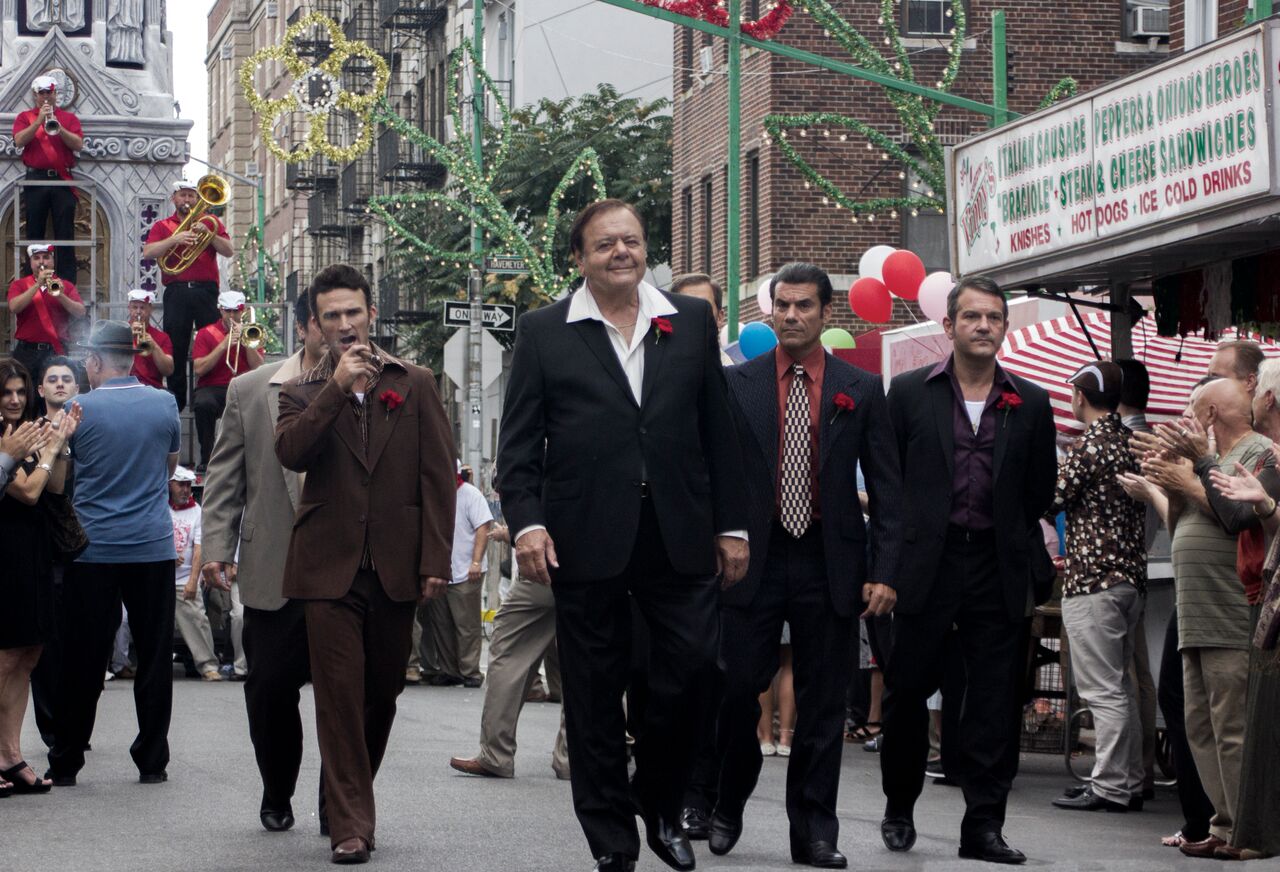
“When I saw Troy’s reel, I said, ‘Where did this guy come from?’” Castelluccio told the Press in a phone interview. “But it turns out I had seen him before, I just didn’t know it was him. That’s how brilliant this guy is, and I’m not blowing smoke up anyone’s butt.”
Ricigliano was equally thrilled that the core cast and production team he’d assembled to execute Lily of the Feast returned with enthusiasm to film the extended project.
“It’s been such a collaborative effort with our producers, like T.J. Sansone. Federico, Greg Lauritano, Craig Cohen, Ken Kelsh and myself made the short,” Ricigliano said. “From there we added Jeff Schneider, who’s my partner. Paul Sorvino was great. For him to do a short film because he was friends with Federico was great–and the fact that he liked it enough to come back was fantastic.”
“I feel, personally, that this is probably one of his best acting performances since Goodfellas,” Castelluccio said.
Sorvino’s close friendship with Castelluccio was formed over a mutual love and respect for art, among other things. Castelluccio is a fine artist. Sorvino is also a sculptor—which was the catalyst for Sorvino to consider his role in Lily of the Feast. Similarly, Castelluccio originally came onboard the project as a favor as well.
“This script came to me from Mike Ricigliano, who was introduced to me as an attorney who has a screenplay,” Castelluccio recalls. “You have certain ideas, like, okay, ‘This guy’s not a writer.’ But he’s a friend of a friend of mine, so I’ll give him the respect of reading the script.”
“And much to my surprise,” he laughs, “I thought it was incredibly well-written. Wow, this guy really can write!”
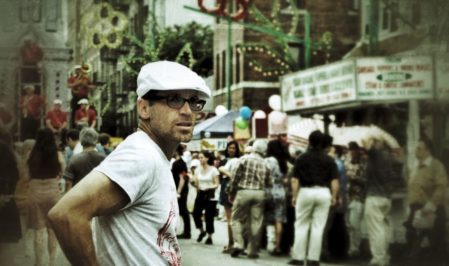
Ricigliano, 45, is an attorney by trade. The writing bug bit him five years ago when he tried his hand at screenwriting, and it never let go. After Lily of the Feast, he wrote “Queen for a Day,” an off-Broadway play directed by John Gould Rubin, hailed by critics as “intense,” “satisfying,” and “well-written.” Then came The Brooklyn Banker. And he’s not stopping there—he’s already hard at work on his next top-secret project.
Ricigliano’s enthusiastic spirit and love for the craft is readily apparent. In a way, this very personal project serves as a love letter, not only to the father who’d regaled him with stories of growing up in Brooklyn, but to a way of life so foreign to a suburban Long Island kid that it took on almost mystical qualities.
“My father told me bedtime stories about what it was like growing up in Brooklyn and about the feast, and what it was like growing up there and what it was like not having any money, where everything was bartering,” Ricigliano recalls. “Those are the stories that always stuck with me.”
As Ricigliano’s masterful cinematic recreations of those dream-like tales are so clearly testament, we’re so lucky (and exuberant) they did.




